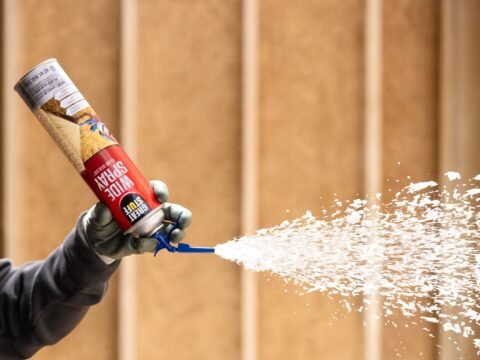
These 5 Ways Insulation Improves Home Energy Efficiency
June 23, 2022
Is Foam Insulation Useful for Your Home?
June 30, 2022Inadequately insulating and sealing the air gap in the shower walls could cause the substantial heat loss and make bathtubs, showers, and bathrooms cold. Suppose the walls outside bathtubs and showers aren’t adequately insulated and air-sealed. In that case, this could result in drafty areas in the house, which reduces the comfort of your home, consumes energy, and could result in mold growth. Any insulation can be put in place behind shower walls, as long as they are in complete touch with air barriers and can fill the space. The wall insulation behind the battery should be comparable to the insulation used outside walls. Cement backer boards, rigid foam insulation, or non-paper-faced walls get sealed at edges and seams. To create an air seal for the project, it gets frequently used to line the walls with an air barrier.
Scope of Insulation
An air barrier is erected on the outside walls of tubs and showers to prevent gaps, misalignments, compressions, or gaps. The wall cavities must cover with a taut air barrier and other supporting materials to provide a constant thermal barrier to prevent shrinkage of the insulation of the pit. Any gaps, seams, and holes within the air barrier may get sealed using caulk or foam before installing showers. The products used to build a sturdy air barrier are glass mat gypsum, fiber reinforced gypsum, and fiber-cement or cementitious backer panel supported by fiber mat.
Benefits of Insulating Shower Walls
Energy-Efficient Heating and Cooling
It is a wall between the shower area and the extreme outdoor temperatures. Sound insulation around your shower walls can help make your house more energy-efficient since it holds both air conditioning and heat. Insulated walls might reduce your cooling and heating costs by up to 40%, which means your monthly energy bill will decrease. In turn, your HVAC system won’t need to be as efficient as it would if you didn’t have any insulation in the walls of your shower.
Improves Moisture Control
Moisture trapped in your house’s wall could cause various problems and require costly repairs. The trapped moisture in the walls may cause rot, mold, or staining when frozen pockets that are moist melt. A membrane that resists vapors can provide better insulation to the water from everyday activities like showering or washing. Insulate shower walls to improve humidity control and minimize the chance of mold growth.
Sound Dampening
In addition to storing the heat and reducing condensation, insulating shower walls improve acoustics by reducing the noise emanating from outside or between rooms. It provides peace of mind while taking showers and lowers the noise from the bathroom or areas. Suppose you don’t like the noise of water splashing across the floor each while you take a shower. Then ensuring that you have adequate insulation behind the walls of your battery can stop the annoying sound by limiting it within the bathroom.
Savings for the Long Term
Homeowners who have put up the structurally insulated panels behind their shower walls can see immediate savings in cooling and heating costs. While the initial insulation cost behind shower walls could be expensive, you will save money at the end of the day. You could cut between 20 and 40 percent off your annual heating bill. It is an affordable alternative as your HVAC system will need to operate less frequently to compensate for heat loss.
What Is the Most Effective Bathroom Insulation Material?
If you’ve decided to install insulation behind your shower walls, you need to consider products with a higher R-value. If you choose a higher rating, the insulation material will be of greater effectiveness and will last longer. Spray-on insulation, such as foam and cellulose, are considered more brilliant options than fiberglass, which is more porous and vulnerable to water retention.
It is possible to try the soy-based solution if you are looking for an environmentally friendly option because it’s resistant to both mildew and mold. Pipe insulation made of foam could also be beneficial for plumbing behind shower walls since it helps keep pipes warm during cold winter. The insulation must remain dry after it has got put installed. It gets accomplished through an installation process involving a barrier or the vapor barrier. It is a vital step that gets required by some building codes.
The insulation behind shower walls is not a standard practice in certain homes. Still, it can benefit comfort, energy efficiency, cost savings, and noise-reducing properties. The best time to add insulation to the shower wall is when there is new construction. But, you can install insulation on the walls that are already in place without needing to cut off the wall. However, it is essential to adhere to the rules in your region since building codes require only the installation of insulation on the walls surrounding a home’s exterior.
Contact us today at (613) 319-8422 and email us at info@613sprayfoam.ca to inquire about an estimate or general inquiries regarding spray foam insulation. 613 Spray Foam looks forward to serving you!




